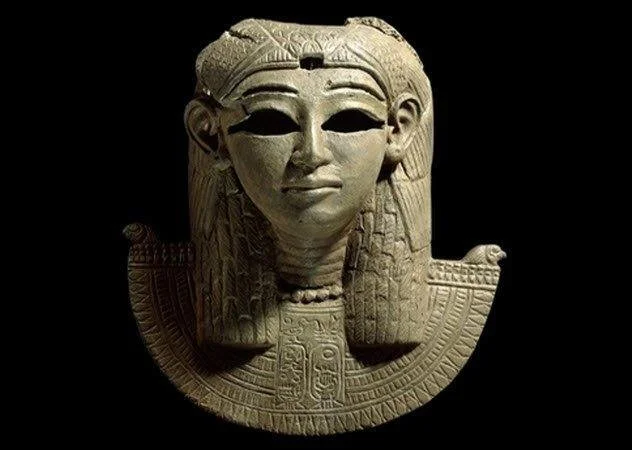Highlight: the African Queen of Sheba
The Queen of Sheba: Africa's Legendary Sovereign
It is time to remember names of African women of power.
Here is just one: the Queen of Sheba. Her story remains clear to us, preserved in the bible, and expanded in all the abrahamic faiths in a further love story with the King of Israel at the time. .
Almost 3,000 years ago, around 970 BC, a remarkable woman ruled a wealthy kingdom at the crossroads of Africa and Arabia. Known as Makeda in African Ethiopia, or the Queen of Sheba in the bible, she ruled a prosperous realm for over 50 years. She is remembered for her wisdom and strategy.
She is most known for her visit to the King Solomon of Israel. This wasn't merely a social call—it was a bold diplomatic and intellectual mission. As the biblical account tells us, she came "to prove him with hard questions." In an era when women rulers were exceptional, Makeda arrived not as a supplicant but as an equal, challenging one of history's most renowned wise men with complex riddles and philosophical inquiries.
A Queen of Unparalleled Wealth and Influence
Makeda wasn't just powerful—she was extraordinarily wealthy. Her kingdom, likely encompassing parts of modern-day Ethiopia and Yemen, controlled vital trade routes for precious commodities. When she journeyed to Jerusalem, she didn't travel lightly. Her caravan was laden with spices, gold, and precious stones in such abundance that biblical texts note "never again came such an abundance of spices" as those she presented to Solomon.
This extravagant display wasn't merely generous gift-giving; it was a demonstration of power. Through these valuable trade goods, Makeda announced herself as a sovereign whose wealth rivaled or even surpassed that of her host. Her command of resources positioned her as a crucial economic player in the ancient world.
The African Origin and Legacy
While debates continue about the exact location of Sheba, strong traditions across East Africa—particularly in Ethiopia—claim Makeda as their own. The Ethiopian national epic, the Kebra Nagast or "Glory of Kings," elaborates on her story, describing her as the mother of Menelik I through her relationship with Solomon. This lineage became the foundation of Ethiopia's imperial dynasty, which claimed unbroken succession from this union until the 20th century.
The significance of this African origin cannot be overstated. In Ethiopian tradition, Makeda established a new capital city at Azeba and remains on the regnal list of Ethiopia as late as 1922. Her story represents one of the earliest and most enduring accounts of African queenship, undermining Eurocentric narratives that marginalize African contributions to world history.
Beauty, Wisdom, and Complexity
The Queen of Sheba's portrayal across traditions reveals fascinating complexities. In the biblical Song of Songs, there's a passage often associated with her: "I am black and beautiful" (or in older translations, "I am very dark, but comely"). This description has made her an important figure for discussions of beauty standards that transcend narrow Eurocentric ideals.
Yet Makeda was never defined merely by her appearance. Across traditions, her intelligence, curiosity, and administrative acumen take center stage. She engaged with Solomon not in frivolous conversation but in profound examination of philosophy, governance, and spiritual matters. The "hard questions" she posed demonstrated her intellectual depth and her unwillingness to accept conventional wisdom without scrutiny.
A Woman Who Defined Her Own Path
Perhaps most remarkable about Makeda's story is her agency. In a world where women were often defined by their relationships to powerful men, she stands out as a sovereign who made her own decisions. She initiated the journey to Solomon's court. She determined the terms of their interaction. And according to Ethiopian tradition, she returned to her kingdom to continue her reign and raise her son according to her own cultural traditions.
Even in accounts that emphasize her relationship with Solomon, Makeda maintains her independence. She doesn't abandon her throne to become a wife—she returns to her people, bringing new knowledge but remaining true to her role as their queen.
The Queen of Sheba in Our Time
The power of Makeda's story continues to resonate today. She represents a powerful counter-narrative to historical accounts that minimize the roles of women and Africans in shaping civilization. Her diplomatic mission to Solomon demonstrates international relations based on mutual respect rather than conquest. Her governance over a wealthy kingdom challenges notions that prosperity and effective leadership were exclusive to certain regions or peoples.
For women leaders today, Makeda offers an ancient example of assertive diplomacy, intellectual engagement, and independent decision-making. For those interested in African history, she stands as evidence that powerful, internationally recognized African states have existed since antiquity.
The Queen of Sheba—Makeda—reminds us that history has always been more diverse and complex than simplified narratives suggest. In her story, we find a woman who defined power on her own terms, an African ruler who commanded international respect, and a sovereign whose legacy has endured for three millennia.
As we continue to expand our understanding of history to include voices long marginalized, the Queen of Sheba stands as a reminder that women and African leaders have shaped our world since its earliest civilizations—we need only to recover and celebrate their stories.
Notes from Wikipedia:
The story of the Queen of Sheba visiting Solomon, 970 BC (the fourth King of Israel) is found in the Hebrew Bible (1 Kings 10:1–13 and 2 Chronicles 9:1–12).
The queen's visit could have been a trade mission. "Never again came such an abundance of spices" (10:10; 2 Chronicles 9:1–9) as those she gave to Solomon. She came "to prove him with hard questions", which Solomon answered to her satisfaction. They exchanged gifts, after which she returned to her land. A recent theory suggests that the Ophel inscription in Jerusalem was written in the Sabaic language. Sheba was quite well known in the classical world, and its country was called Arabia Felix.
South Arabian inscriptions do mention a South Arabian queen (mlkt), and in the north of Arabia, Assyrian inscriptions repeatedly mention Arab queens.[wiki] This title may be derived from Ancient Egyptian m'kit (𓅖𓎡𓇌𓏏𓏛) "protectress".[wiki]
Christian scriptures mention a "queen of the South" who "came from the uttermost parts of the earth", i.e. from the extremities of the then known world.
Based on the Gospels of Matthew (Matthew 12:42) and Luke (Luke 11:31), the "queen of the South" is claimed to be the queen of Ethiopia.
The bride of the Canticles is assumed to have been black due to a passage in Song of Songs 1:5, which the Revised Standard Version (1952) translates as "I am very dark, but comely", as does Jerome (Latin: Nigra sum, sed formosa), while the New Revised Standard Version (1989) has "I am black and beautiful".
One legend has it that the Queen of Sheba brought Solomon the same gifts that the Magi later gave to Jesus.[34]
The story of Solomon and the queen was popular among Copts, as shown by fragments of a Coptic legend preserved in a Berlin papyrus.
The queen, having been subdued by deceit, gives Solomon a pillar on which all earthly science is inscribed.
The most extensive version of the legend appears in the Kebra Nagast (Glory of the Kings), the Ethiopian national saga,[37] translated from Arabic in 1322.[38][39][40] Here Menelik I is the child of Solomon and Makeda (the Ethiopic name for the queen of Sheba; she is the child of the man who destroys the legendary snake-king Arwe[41]) from whom the Ethiopian dynasty claims descent to the present day.
The Queen was also known as Makeda of Ethiopia who ruled the Ethiopian kingdom for more than 50 years.[wiki] She remains on the 1922 regnal list of Ethiopia. Jewish, Christian, and Muslim traditions developed stories about a romantic relationship and even a marriage between Solomon and the Queen of Sheba. Some later accounts suggest that Solomon may have had a child with her.
King Solomon, known for his wisdom and wealth, ruled ancient Israel at the pinnacle of its glory. He was revered for his intelligence, fair judgment, and deep understanding of human nature. The Queen of Sheba, a powerful and enigmatic figure, resided in a prosperous kingdom, possibly located in present-day Ethiopia or Yemen. She was known for her beauty, intelligence, and wealth, which rivaled even that of King Solomon. She embarked on a long and arduous journey to visit the Israelite King, bringing with her a caravan laden with precious gifts and treasures.
King Solomon sought merchants from all over the world, in order to buy materials for the building of the Temple. Among them was Tamrin, great merchant of Queen Makeda of Ethiopia. She was warmly welcomed, given a palace for dwelling, and received great gifts every day.
Solomon gave Makeda a ring as a token of faith, and then she left. On her way home, she gave birth to a son, whom she named Baina-leḥkem (i.e. bin al-ḥakīm, "Son of the Wise Man", later called Menilek). After the boy had grown up in Ethiopia, he went to Jerusalem carrying the ring and was received with great honors. The king and the people tried in vain to persuade him to stay. Solomon gathered his nobles and announced that he would send his first-born son to Ethiopia together with their first-borns. He added that he was expecting a third son, who would marry the king of Rome's daughter and reign over Rome so that the entire world would be ruled by David's descendants. Then Baina-leḥkem was anointed king by Zadok the high priest, and he took the name David. The first-born nobles who followed him are named, and even today some Ethiopian families claim their ancestry from them.
Makeda is described as establishing a new capital city at Azeba.
Some beleive Makeda is a variation of the name Candace, known for several Ethiopian queens from Meroe or Seba. Candace was the name of that queen of the Ethiopians whose advisor was converted to Christianity in 30 AD.
According to one tradition, the Ethiopian Jews (Beta Israel, "Falashas") also trace their ancestry to Menelik I, son of King Solomon and the Queen of Sheba.[51]
Others have proposed either the marriage of Solomon with an Egyptian Pharaoh's daughter.
1 Kings 3:1 says, "And Solomon became allied to Pharaoh king of Egypt by marriage, and took Pharaoh's daughter, and brought her into the city of David, until he had made an end of building his own house, and the house of the Lord, and the wall of Jerusalem round about."
The fact that Pharaoh's daughter has been singled out in the accounts of Solomon is significant as similar treatment is not given to his "seven hundred wives, princesses, and three hundred concubines" (1 Kings 11:3). Some scholars believe this unique example was because this marriage in particular "demonstrates the wealth and power of the Hebrew monarchy, for Pharaoh's daughters did not ordinarily marry outside of their own family, and perhaps indicates the weakness of the Egyptian kingdom at this time."[1] Another scholar points out that marrying Pharaoh's daughter is significant in light of the story of Exodus, "A descendant of former Egyptian slaves now became Pharaoh's son-in-law".[2]



